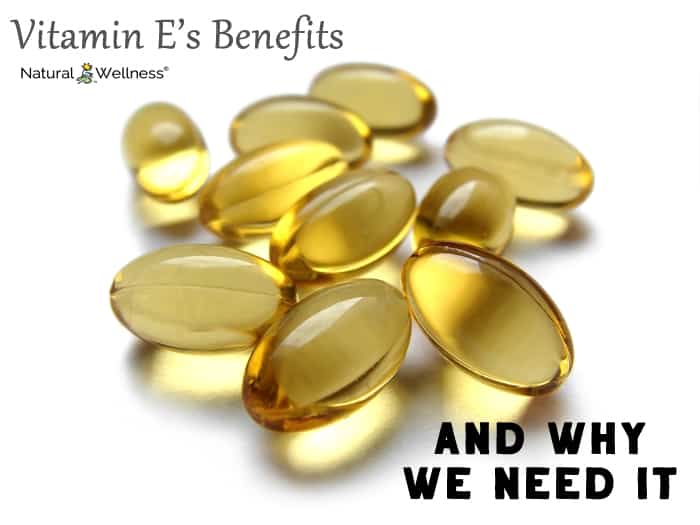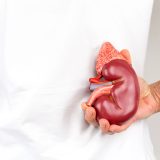

The human body relies on certain vitamins to function as efficiently as it can. It needs the B vitamins to help convert the foods we eat into energy, for instance, while vitamin C can make the immune system stronger. (1) Another of the key vitamins is vitamin E.
Why Do We Need Vitamin E?
The Office of Dietary Supplements (ODS) explains that vitamin E is a fat-soluble vitamin that serves many purposes. It helps protect cells from free radical damage, makes the immune system more resilient against the latest bugs and viruses, and stops your blood from clotting while circulating in the blood vessels. (2)
Part of what makes vitamin E so complex is, although it comes in eight different forms, only one of these forms can be metabolized by the liver: alpha-tocopherol. (3) Your body gets rid of the rest.
What Does Vitamin E Help Prevent?
Research suggests that vitamin E can help protect the body from various diseases.
- A 2019 study in the International Journal of Molecular Sciences reports that this vitamin’s anti-inflammatory and hypocholesterolemic properties appear to aid in the prevention of Alzheimer’s disease. (4)
- Another 2019 study notes an inverse relationship between vitamin E and Parkinson’s disease. (5)
- A 2018 review in the journal Antioxidants further explains that vitamin E has been found to reduce the oxidative stress that occurs with nonalcoholic fatty liver disease (NFLD). (6) This is important because oxidative stress is thought to produce lethal liver injury.
- While its mechanisms are somewhat unclear, there also seems to be evidence that this vitamin has anti-cancer properties. (7)
Vitamin E Recommended Intake
The ODS recommends that most adults and individuals who are pregnant get 15 milligrams of vitamin E daily. (2) This same amount is recommended for teens between the ages of 14 and 18 years. Breastfeeding teens and women need slightly more, with a suggested daily intake of 19 milligrams. Infants and children need less, ranging from 4 milligrams to 11 milligrams depending on age.
Vitamin E Foods
One way to make sure you get enough vitamin E to meet your recommended daily intake is by eating foods that contain the alpha-tocopherol form of this nutrient.
A handful of the top food sources for vitamin E include: (8)

- Wheat germ oil (just one tablespoon supplies all of your daily vitamin E)
- Sunflower seeds
- Almonds
- Hazelnuts
- Peanut butter
- Spinach
Vitamin E Supplement Benefits
If you don’t get enough vitamin E in your diet, a supplement can help fill the gap. Vitamin E supplementation may also benefit people with conditions that make them more susceptible to fat-soluble vitamin deficiencies. Cystic fibrosis is one such condition that falls into this category. (9)
Natural Wellness’s Natural Vitamin E supplies 268 milligrams of d-alpha tocopherol vitamin E. This supplement is non-GMO, gluten-free, and manufactured in an FDA-registered facility.
What Are the Side Effects of Taking Vitamin E?
While side effects are rare, some people may experience nausea, diarrhea, intestinal cramps, fatigue, weakness, headaches, blurred vision, or develop a rash after taking vitamin E. (10) Talk with your doctor if you experience any of these issues.
Is Too Much Vitamin E Bad for You?
The ODS indicates that exceeding 1,000 milligrams of vitamin E daily can have adverse effects. Namely, it may increase cancer risk and might even increase the risk of death. (11) Therefore, staying below these limits can help you avoid these potential effects.




